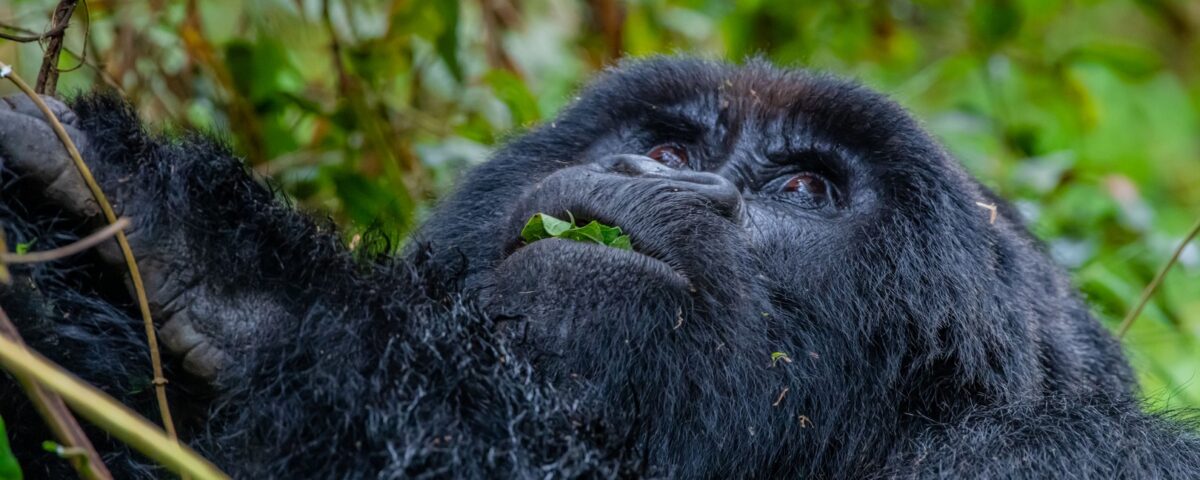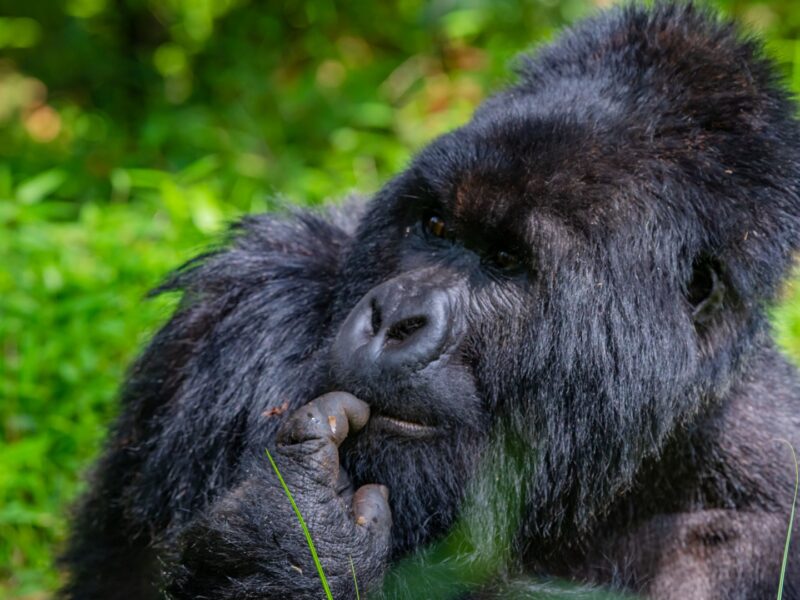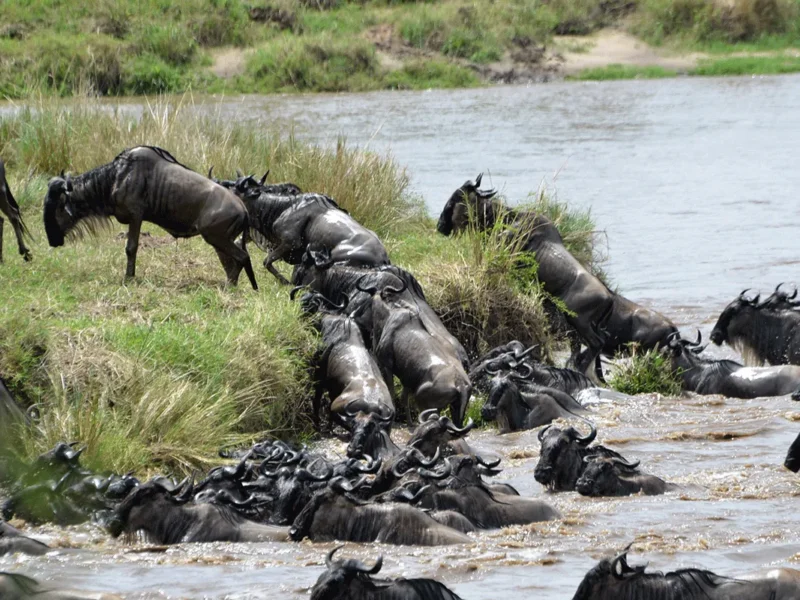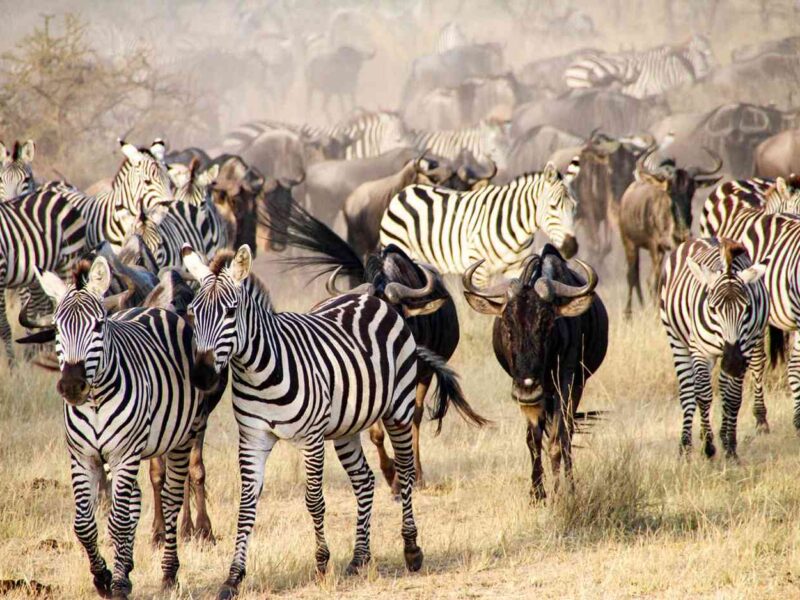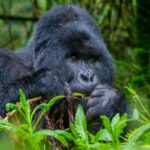
Photographic Safaris in Uganda
October 15, 2025
Gorilla Trekking with Great Migration
October 15, 2025Gorilla Tourism Funds Conservation
Bridging Wildlife Protection and Community Empowerment
How Gorilla Tourism Funds Conservation and Local Communities is a story of balance between nature, culture, and responsible travel.
Uganda’s mountain gorillas are among the world’s most endangered species, and their survival depends on both careful conservation and sustainable tourism practices.
Gorilla trekking has become more than a thrilling wildlife adventure it now functions as a critical tool for funding gorilla conservation Uganda initiatives and empowering local communities through education, healthcare, and economic opportunities.
For travelers considering Uganda Gorilla Trekking, this connection is central to their safari experience.
Each visit contributes directly to habitat protection and local welfare. The question often arises, “When to go for a Uganda Gorilla Safari?” or “How can eco-conscious tourism truly benefit wildlife and people?”
The answer lies in Ngeye Tours and Travel’s commitment to sustainable tourism, ensuring that every journey is carefully designed to support Uganda’s ecosystems and indigenous communities.
By combining Uganda Gorilla Safaris with cultural experiences and guided tours through nearby villages, travelers gain insight into the profound relationships between humans and wildlife.
Ngeye’s operations focus on responsible travel, minimizing environmental impact while maximizing positive influence on both gorillas and local populations.
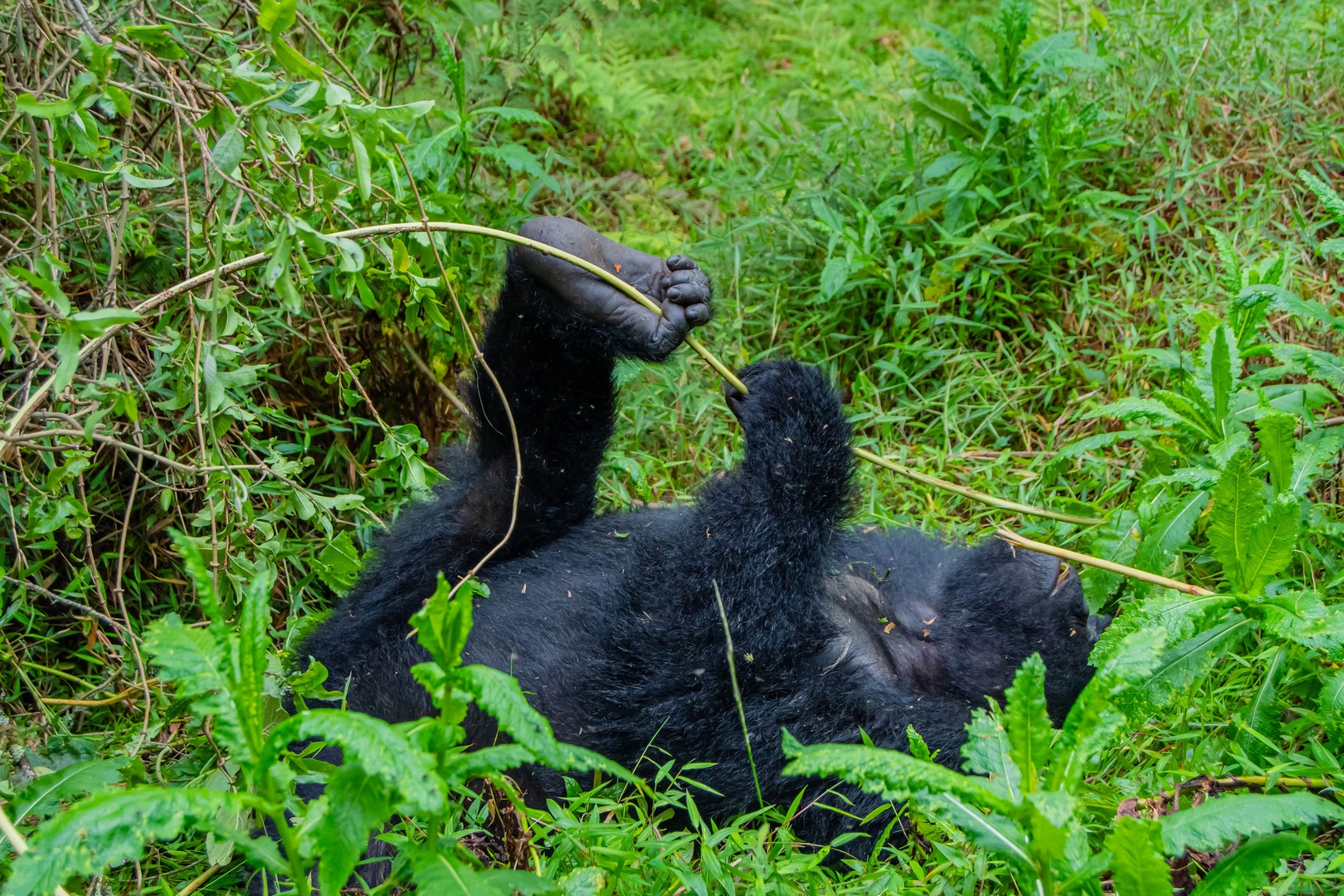
A Gorilla Relaxing in the Forest
The Role of Gorilla Tourism in Conservation
Gorilla trekking in Bwindi Impenetrable Forest and Mgahinga Gorilla National Park provides vital funding for anti-poaching initiatives.
Each Uganda Gorilla Trekking permit generates resources that support park rangers and conservation programs, ensuring that gorilla populations remain stable and secure.
This revenue directly contributes to protecting fragile ecosystems and mitigating threats from habitat destruction, poaching, and disease.
Visitors who ask, “What to pack for a Uganda Gorilla Safari?” or “How does visiting these parks help gorilla survival?”
Should know that every guided trekking experience is part of a larger conservation strategy.
Trails are carefully managed to prevent forest degradation, and group sizes are strictly limited to reduce stress on gorillas.
Ngeye Tours and Travel ensures that travelers follow best practices, including maintaining safe distances, wearing masks, and adhering to park regulations.
Furthermore, Uganda Gorilla Safari Lodges play a significant role in conservation.
These lodges integrate eco-friendly practices such as solar energy, rainwater harvesting, and waste management systems, which minimize the environmental footprint of tourism.
Travelers staying in these accommodations actively contribute to sustainable tourism while enjoying comfort and proximity to gorilla habitats.
By supporting eco-conscious operators, tourists indirectly sustain both gorilla welfare and forest preservation.
Supporting Local Communities Through Gorilla Tourism
A key aspect of how gorilla tourism supports conservation and local communities lies in the socioeconomic.
Many communities surrounding Bwindi and Mgahinga forests have historically depended on the land for survival.
Today, guided Batwa Cultural Tours and community-driven tourism programs provide alternative livelihoods, ensuring that locals benefit directly from wildlife tourism.
Through revenue-sharing mechanisms, a portion of Uganda Gorilla Trekking fees funds education, healthcare, and infrastructure development for local villages.
This approach empowers communities to engage in conservation willingly, as protecting gorillas.
Travelers asking, “How can cultural experiences complement a Uganda Gorilla Safari?”
Find that guided tours with Batwa communities reveal traditional music, dance, and forest knowledge, adding meaningful context to wildlife encounters.
Additionally, training programs for local guides, hospitality staff, and conservation personnel create employment opportunities that were previously unavailable.
Ngeye Tours and Travel emphasizes hiring from nearby communities to maintain authentic experiences while generating sustainable income.
By combining Uganda Gorilla Trekking with cultural immersion, visitors ensure that tourism contributes to a positive cycle of wildlife preservation and human development.
Integrating Cultural Experiences and Eco Tourism
Integrating cultural experiences around safari lodges enhances the overall impact of gorilla tourism.
Many Uganda Gorilla Safari Lodges offer organized visits to Batwa villages where guests can witness traditional dances, storytelling, and artisanal craft-making.
These experiences reveal how the Batwa historically coexisted with gorillas and demonstrate the knowledge that informs modern conservation strategies.
Travelers who wonder, “Where to stay on a Kenya birding safari?” or “How can Uganda safaris combine wildlife and culture?”
Will find that Bwindi and Mgahinga offer unmatched integration.
Beyond gorilla trekking, visitors can explore local agricultural practices, forest trails, and community projects aimed at sustainable resource use.
These activities make a safari deeply educational while creating direct benefits for the people who maintain the forests.
Sustainable tourism practices in lodges also extend to energy and waste management, supporting Uganda Eco Safaris initiatives.
By reducing environmental impact and encouraging responsible travel, lodges ensure that gorilla habitats remain intact for future generations.
Combining eco-conscious accommodation, guided trekking, and cultural immersion ensures a holistic safari experience that maximizes positive impact on both wildlife and communities.


